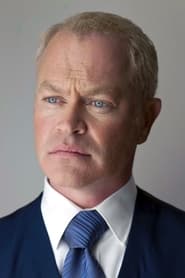
Ask Your Own Question
What is the plot?
The episode "Why We Fight" begins with the men of Easy Company stationed in Austria after the war in Europe has ended. They are in a state of uncertainty and boredom, grappling with the aftermath of their experiences. The scene opens with the soldiers engaging in mundane activities, such as playing cards and discussing their future, but there is a palpable sense of discontent among them. They are struggling to find purpose now that the fighting is over.
The narrative shifts to a flashback of Captain Lewis Nixon and Major Richard Winters, who are reflecting on their time in combat. They discuss the war's toll on their lives and the lives of their comrades. This moment of introspection sets the stage for the emotional weight of the episode, as the men of Easy Company are haunted by their memories and the losses they have endured.
The story then transitions to the discovery of a concentration camp near the town of Landsberg. The soldiers of Easy Company are ordered to investigate the camp, and as they approach, they are met with a horrific sight. The camp is filled with emaciated prisoners, and the conditions are appalling. The men are visibly shaken by the reality of what they witness, and their expressions reflect a mix of disbelief, anger, and sorrow.
As they enter the camp, the soldiers encounter a group of survivors who are desperate for help. The camera captures the raw emotions on the faces of the men as they realize the extent of the atrocities committed. They are confronted with the stark contrast between their previous experiences in battle and the brutal reality of the Holocaust. This moment serves as a turning point for many of the soldiers, as they grapple with the moral implications of their fight in the war.
Captain Nixon takes charge of the situation, coordinating efforts to provide aid to the survivors. He is determined to ensure that the prisoners receive food, medical attention, and support. The men of Easy Company work tirelessly, distributing rations and comforting the traumatized survivors. The emotional weight of the scene is palpable, as the soldiers witness the suffering and resilience of those who have endured unimaginable horrors.
The episode also highlights the internal struggles of the soldiers as they process their experiences. Private First Class Eugene Roe, the company medic, is particularly affected by the suffering he sees. He is overwhelmed by the trauma of the camp and the memories of his fallen comrades. His emotional state is depicted through his interactions with the survivors, as he tries to provide care while grappling with his own feelings of helplessness.
As the days pass, the men of Easy Company continue to assist the survivors, but the emotional toll begins to weigh heavily on them. They are haunted by the images of the camp and the stories of the prisoners. The camaraderie among the soldiers is tested as they confront their own demons and the reality of the war's impact on humanity.
The episode culminates in a powerful scene where the soldiers gather to reflect on their experiences. They share their thoughts and feelings about the war, the concentration camp, and the meaning of their fight. This moment of vulnerability allows the characters to connect on a deeper level, as they acknowledge the shared trauma that binds them together.
In the final moments of the episode, the men of Easy Company are left to ponder the question of why they fought. The emotional weight of their experiences lingers, and the camera captures their somber expressions as they grapple with the complexities of war and the human cost of their actions. The episode closes with a sense of unresolved tension, leaving the audience to reflect on the profound impact of their journey.
What is the ending?
In the ending of "Why We Fight," the soldiers of Easy Company discover a concentration camp in Germany, witnessing the horrific conditions and the suffering of the prisoners. This experience profoundly impacts them, leading to a deeper understanding of the war's true stakes. The episode concludes with the men reflecting on their experiences, grappling with the moral implications of their fight, and the realization that their sacrifices were for a greater cause.
As the episode unfolds, it begins with Easy Company stationed in the German town of Berchtesgaden, where they are enjoying a brief respite after the intense fighting in the Battle of the Bulge. The men are in a state of mixed emotions, feeling the weight of their experiences and the toll of war. They are soon ordered to move out, and the atmosphere shifts as they prepare for what lies ahead.
The scene transitions to the soldiers traveling through the German countryside, where they are met with the remnants of war. The men are somber, reflecting on their journey and the losses they have endured. Their camaraderie is evident, but so is the burden of their memories. As they approach a small town, they receive intelligence about a nearby concentration camp.
Upon arriving at the camp, the soldiers are confronted with a scene of unimaginable horror. The camp is filled with emaciated prisoners, many of whom are barely alive. The sight is shocking, and the men are visibly disturbed. They witness the inhumane conditions, the suffering, and the remnants of genocide. The emotional weight of this discovery is palpable, as the soldiers grapple with the reality of what they are fighting against.
As they interact with the survivors, the soldiers experience a range of emotions--anger, sadness, and a sense of purpose. They realize that their fight is not just against the enemy soldiers but against the very ideology that allows such atrocities to occur. This moment serves as a turning point for many of the men, as they come to understand the broader implications of their service.
The episode highlights key characters, such as Captain Winters, who embodies leadership and moral clarity. He is deeply affected by the sight of the camp, and his resolve to fight for justice is strengthened. Other characters, like Lieutenant Nixon, also reflect on the meaning of their sacrifices, questioning the nature of their mission and the cost of war.
As the episode draws to a close, the men of Easy Company are left to process their experiences. They gather together, sharing their thoughts and feelings about what they have witnessed. The camaraderie that has sustained them throughout the war is now intertwined with a profound sense of responsibility. They understand that their fight is not just for victory but for humanity itself.
In the final moments, the soldiers are seen walking away from the camp, their faces etched with the weight of their experiences. Each character carries the burden of what they have seen, and the episode ends on a note of reflection, emphasizing the moral complexities of war and the enduring impact it has on those who fight.
The fates of the main characters are left open-ended, as they continue their journey through the war, forever changed by the horrors they have witnessed. The episode concludes with a sense of unresolved tension, highlighting the ongoing struggle for meaning and purpose in the face of unimaginable suffering.
Is there a post-credit scene?
In the episode "Why We Fight" from Band of Brothers, there is no post-credit scene. The episode concludes with a powerful and emotional resolution, focusing on the aftermath of the discovery of a concentration camp by Easy Company. The narrative wraps up with the soldiers grappling with the horrors they have witnessed, emphasizing the weight of their experiences and the moral complexities of war. The episode ends on a somber note, reflecting the profound impact of their journey, but there are no additional scenes or credits following the main story.
What is the significance of the discovery of the concentration camp in the episode?
In 'Why We Fight', the discovery of the concentration camp serves as a pivotal moment for the soldiers of Easy Company. As they enter the camp, they are confronted with the horrific reality of the Holocaust, which starkly contrasts with their previous experiences of combat. This moment forces the men to grapple with the moral implications of their fight in the war, as they witness the suffering and inhumanity inflicted upon the prisoners. The emotional weight of this discovery deeply affects characters like Captain Winters and Lieutenant Speirs, who are visibly shaken by the atrocities they encounter.
How does Captain Winters react to the news of the concentration camp?
Captain Winters is initially stoic and focused on the mission, but upon entering the concentration camp, his demeanor shifts dramatically. He is visibly disturbed by the sight of the emaciated prisoners and the conditions they are living in. This moment reveals his internal conflict; while he is a soldier committed to the war effort, he is also a human being grappling with the moral implications of what he is witnessing. Winters' reaction highlights his leadership qualities, as he tries to maintain composure for his men while processing the horror before him.
What role does Lieutenant Speirs play in the episode, particularly during the camp discovery?
Lieutenant Speirs plays a crucial role in 'Why We Fight', particularly during the discovery of the concentration camp. He is portrayed as a tough and fearless leader, but the horrors of the camp challenge his hardened exterior. Speirs is seen taking charge, directing the men and ensuring that they maintain order amidst the chaos. However, his reaction to the camp's conditions reveals a more vulnerable side; he is visibly affected by the suffering of the prisoners, which adds depth to his character and showcases the emotional toll the war takes on even the most hardened soldiers.
What is the impact of the episode's events on the soldiers' perception of their mission?
The events of 'Why We Fight' significantly alter the soldiers' perception of their mission. Initially, the men of Easy Company are focused on the tactical aspects of the war, but the discovery of the concentration camp forces them to confront the broader implications of their fight against the Axis powers. They begin to understand that their struggle is not just about military victory, but also about liberating oppressed people and fighting against inhumanity. This realization deepens their sense of purpose, but it also burdens them with the weight of the atrocities they have witnessed, leading to a complex emotional response to their role in the war.
How does the episode address the theme of camaraderie among the soldiers?
In 'Why We Fight', the theme of camaraderie is highlighted through the shared experiences of the soldiers as they confront the horrors of the concentration camp together. The men support one another emotionally as they process the trauma of what they have seen. Scenes of them discussing their feelings and reactions to the camp illustrate the bond they share, as they rely on each other for strength in the face of such overwhelming despair. This camaraderie is further emphasized in moments of solidarity, where they come together to help the survivors, showcasing their humanity amidst the brutality of war.
Is this family friendly?
"Band of Brothers," particularly in the episode "Why We Fight," contains several scenes and themes that may not be suitable for children or sensitive viewers. Here are some potentially objectionable or upsetting aspects:
-
Graphic Violence: The episode includes depictions of war, including combat scenes that show injuries and death, which can be intense and disturbing.
-
Concentration Camps: The characters encounter a concentration camp, leading to harrowing visuals of emaciated prisoners and the aftermath of atrocities, which can be very distressing.
-
Emotional Trauma: The psychological impact of war on soldiers is explored, showcasing their struggles with fear, loss, and moral dilemmas, which may be heavy for younger audiences.
-
Strong Language: There are instances of strong language used by characters, reflecting the stress and emotions of wartime.
-
Death and Loss: The episode deals with themes of mortality and the loss of comrades, which can evoke strong emotional responses.
These elements contribute to the overall mature themes of the series, making it more appropriate for older teens and adults.




















